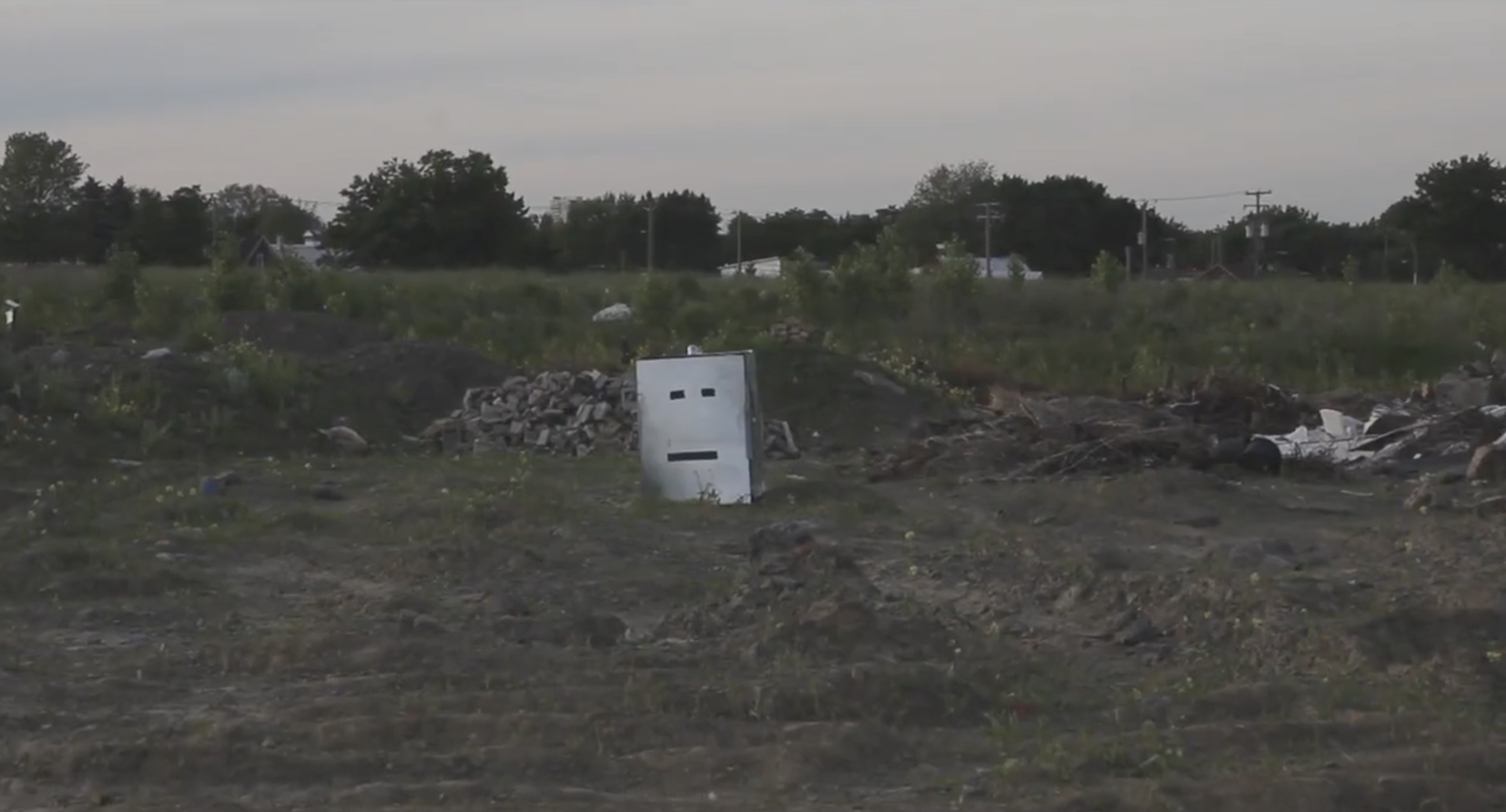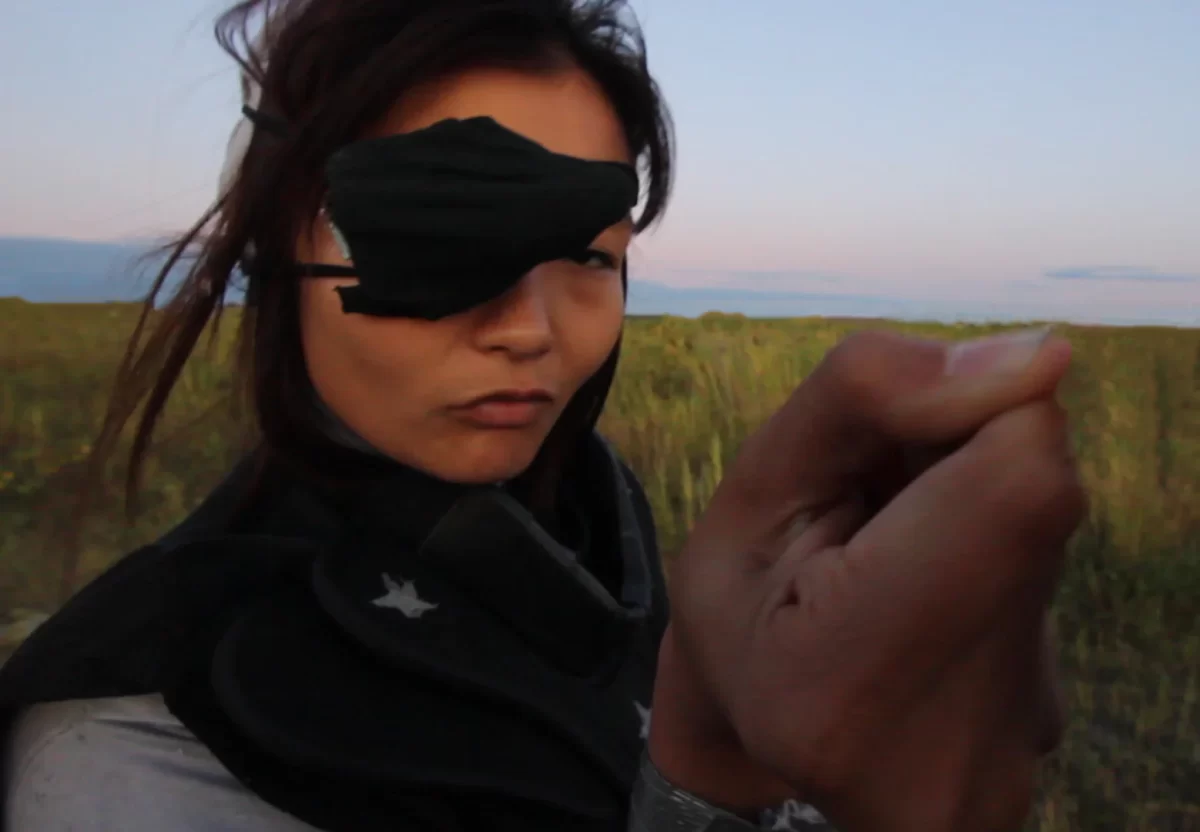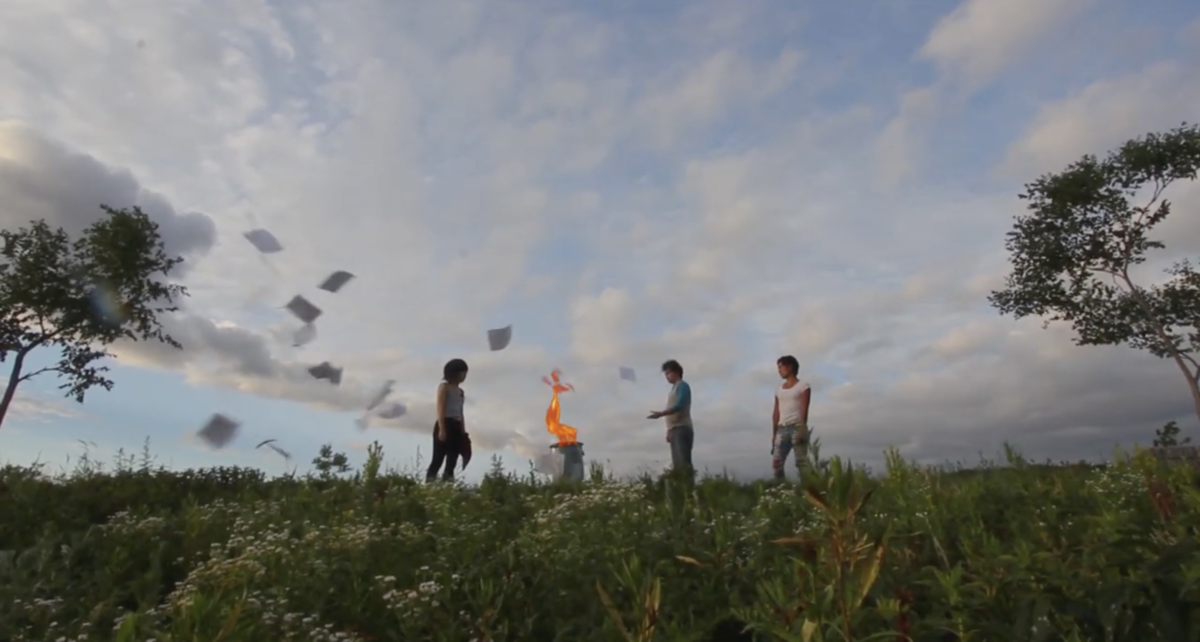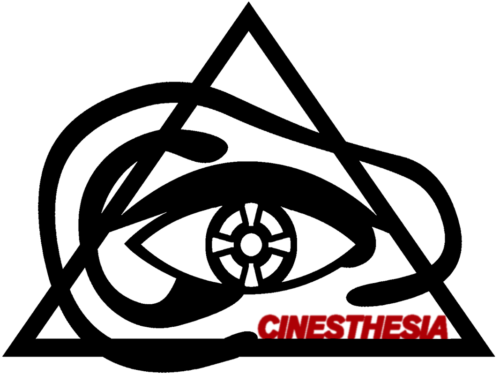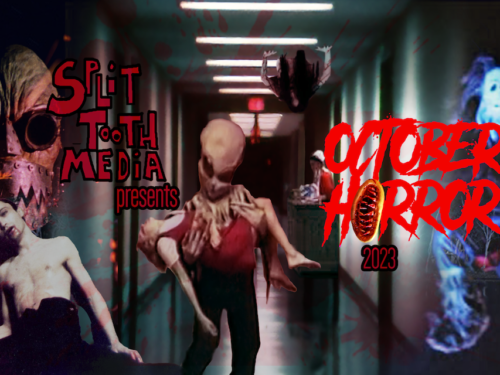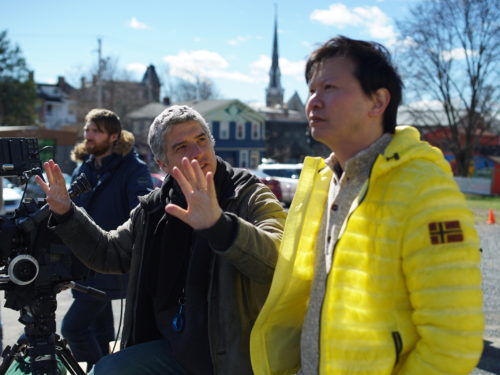A dense, sprawling epic set in a wasteland where inhabitants battle and search for the Embodiment of Angst, Open Doom Crescendo is a major cinematic achievement coming soon to Blu-ray
It is incredibly safe to bet that you have never seen a movie quite like Open Doom Crescendo (2022), the sophomore feature from filmmaker Terry Chiu. Shot on the outskirts of suburbia in Montreal, Canada, this three-hour behemoth of lo-fi dystopia isn’t just ambitious; it is earnest, and hilarious, and radical in ways I haven’t seen from a movie of any scale in a long time, if ever. In interviews about the film, including a conversation for this website with Jim Hickcox (arriving Friday), Chiu cites a handful of mega-franchises, from Spiderman to The Matrix, as reference points for the film and its loaded and self-contained mythology. One of his goals is to demonstrate that filmmakers don’t need a small nation’s worth of wealth to create a film of such scale, which he proves through DIY ingenuity and an inclusive, community-forward ethos. But similarities to such films or brands end at the level of plot synopsis. Open Doom operates on an expressive plane that throws tried-and-true narrative forms to the wind in favor of a humble audaciousness. Battles and poetic interludes intertwine; existential wounds are opened and examined with great vulnerability. Chiu and his collaborators question political and social structures and search for impossible answers while the characters kick unbelievable amounts of ass. Open Doom Crescendo contains the best of all movie worlds.
Set in a vaguely defined apocalyptic wasteland, various gangs and outsiders fight to the death in search of the Embodiment of Angst, a seemingly mythical figure who is believed to hold the answer to everyone’s angst. The film begins with Keikei (Xinkun Dai) and Rev (Chiu), a duo who are also on the lookout for their missing friend Spike (Matias Rittatore). Threats along their journey include the Candy Ass Kickers, a gaggle of leotarded minions led by Lady Moondrift (Pei Yao Xu), and Psycho in the Radio, a mysterious figure who scrapes across the landscape in a metallic radio box that leaves death and destruction in its wake. Keikei and Rev also cross paths with The Gertrude (Ian Sheldon), described by Chiu as the “ugliest being anyone has ever seen,” who stands as the greatest challenge for wasteland dwellers both evil and good to empathize with.
Chiu has suggested that these characters entered this space under Matrix-like circumstances, by being beamed into an alternate plane through the overwhelming angst they suffer from in their daily lives. Wisely, the film never leaves the “real world” fully behind: Suburban, cookie-cutter housing developments and dilapidated structures pop up along the peripheries and over the greenish hills of the wasteland. They suggest another type of life once lived: signs of different goals and pressures — for some to strive for and others to be crushed by — beyond the more spiritual pursuits towards catharsis in the wasteland. Of course, elements of the violence from our familiar world translate into the wasteland, as the inhabitants spend most of their time murdering each other.
Chiu’s debut feature was the brilliant Mangoshake (2018), a coming of age movie dedicated to “every person who watches a coming of age movie and feels way worse after.” The film, set in the same type of suburban sprawl glimpsed beyond the fields of Open Doom, is a genre critique that is free of ironic self-awareness. It plays so loose in its allegiance to any familiar narrative conventions that even calling it a “critique” feels reductive, stodgy, and academic. Mangoshake takes what it wants from films like Dazed and Confused or American Graffiti and tosses out the saccharine or tired genre elements in favor of something more anarchic. It is also ambitious in ways that cause many films made on similar scales to fall apart. It features a large cast of non-professional actors and a daring amount of scenes in which the majority of the cast is required to be on screen together. Chiu was already testing the limits of community filmmaking in his debut. But these feats look quaint in comparison to what Chiu had in mind for his next project.
Open Doom Crescendo retains the spirit of Mangoshake but is a work of a whole different magnitude. It is everything you want to see a filmmaker attempt in a follow-up to a great debut. The scope is extended beyond what would appear possible on a DIY-scale, but it loses none of its heart in the process. The film feels at once massive and intimate. It piles differing tones on top of each other and pulls off daring structural shifts with effortful grace and abandon. It loads the frame with exploding guts, bulging eyeballs, and homemade go-carts falling from the sky. It hosts a never-ending cast of characters, each more desperate for connection than the last, and features enough battles to fill multiple Hollywood franchises. Chinese and English subtitles, often not quite matching the dialogue spoken by the actors, add to the densely layered presentation. The text graffitis the screen in morphing patterns that flash and scroll over the action. The film is entirely aware of its limitations and brings them to the fore. It charts the gaps between artistic vision and what is actually creatable in reality. It expresses with distressing weight and clarity the feeling of being unable to fix the disparities and evils of the world.
Open Doom Crescendo is inspiring on a formal level and often devastating in its emotional frankness. It’s hilarious and brave in its scope, yet the core of the film lies in the fact that a bunch of friends got together to make an epic action movie in a field. An extended tangent features a break in the film’s narrative that invites us behind the curtain of the production. Rather than distracting or digressing from the action in the wasteland, it makes everything before and after that much more powerful through Chiu’s choice to shine a light on the effort that went into the film. Ultimately, it’s the sincerity of the film’s joys and frustrations with the world that make it such a monumental achievement. The distancing effect that comes from seeing the actual work being done pulls the viewer further into the densely layered emotional fabric that holds the film together. It is a dangerous choice for a filmmaker to make, especially so late in the film’s extensive runtime. But that is what sets Chiu and his film apart: Open Doom Crescendo takes a lot of risks and faces each of them by wholeheartedly embracing them into smithereens.
Read about the production of Open Doom Crescendo in our interview with Terry Chiu:
Purchase Open Doom Crescendo on Blu-ray at Gold Ninja Video
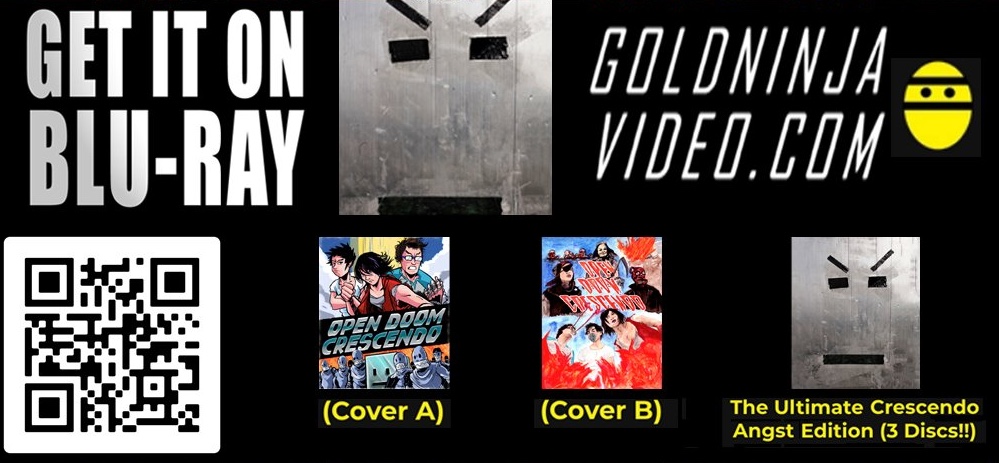
(Split Tooth may earn a commission from purchases made through affiliate links on our site.)

